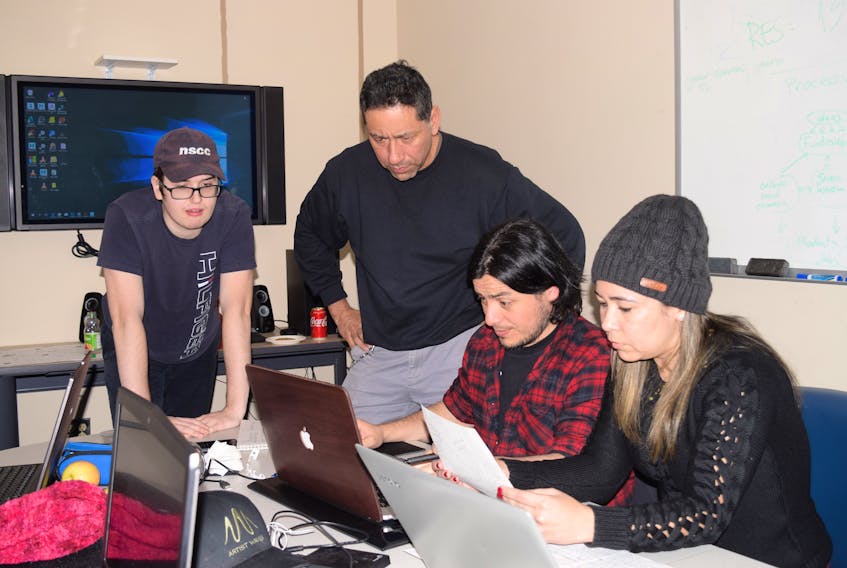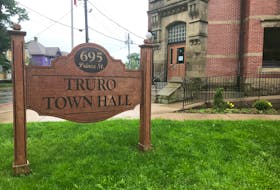Student teams in Truro joined others from around the province for Challenge Nova Scotia, Friday.
Teams at the Nova Scotia Community College in Truro and elsewhere had 12 hours to answer this year’s question of how to support new business start-ups, posed on Nov. 23 by Premier Stephen McNeil and NSCC president Don Bureaux.
“In effect, they could have impact on making changes to the social issue that is faced by Nova Scotia,” said Andrea Ferguson, one of the Truro campus leads for Challenge NS. “They have to come up with a creative way to solve the social challenge in Nova Scotia.”
All teams must make a video outlining their solutions to the question and the top three will have their films viewed by both McNeil and Bureaux, and will win prize money of up to $2,000.
This year’s question on business innovation stems from the 2013 Ivany Report, which outlines steps Nova Scotia must take to improve its economy, support new business start-ups and attract more immigrants to offset its aging population.
“It almost could have been ‘how do we address the Ivany Report,’” said Ferguson’s colleague Matt Doucette.
Challenge NS participant Barb Pratt, one of five people on Team 89 in Truro, said the best answer was offering grass-roots support to would-be entrepreneurs at NSCC campuses.
For example, a Syrian refugee could use office space, computers and other technology and also tap into the graphic design skills of NSCC students to build a new website and sell his products. If Team 89’s idea is successful, refugees and other immigrants, as well as people on social assistance, could not only improve their own lot, but could jumpstart the economy.
“If it’s someone on assistance or even someone like a migrant worker, what it will do is give people a chance to stand on their own feet without having to rely on the government’s money,” said Pratt. “We have an aging population of baby boomers that are eventually going to be out of work, so what this will do is create more jobs for more people. It will boost the economy of Nova Scotia. This will give the young people a chance to step up and grow something.”
Meantime, their rivals on Team 86 believed that connection was the key for a strong economy that can create jobs. Their Challenge NS group was an international one, including one person each from Canada, Peru, Chile and Brazil.
“We have to connect these people who have ideas with people from the private sector that have money to invest through foundations, multinational companies that have money to invest in research and innovation and the government of Nova Scotia. We have to connect all of these people to make these ideas become viable,” said Brazilian Quedma Matola.
In Brazil, tech startups have prospered by tapping into a growing middle class and are now expanding across Latin America and even into Canada and Europe.
Many such companies got started through support from the Start-Up Brazil government program, while foreign investors can also receive permanent resident visas to grow their businesses.









